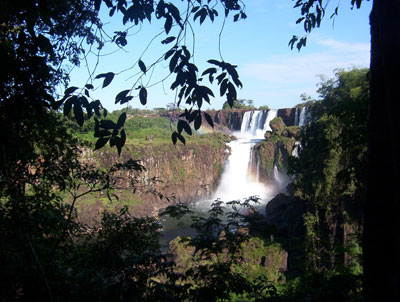All Nonfiction
- Bullying
- Books
- Academic
- Author Interviews
- Celebrity interviews
- College Articles
- College Essays
- Educator of the Year
- Heroes
- Interviews
- Memoir
- Personal Experience
- Sports
- Travel & Culture
All Opinions
- Bullying
- Current Events / Politics
- Discrimination
- Drugs / Alcohol / Smoking
- Entertainment / Celebrities
- Environment
- Love / Relationships
- Movies / Music / TV
- Pop Culture / Trends
- School / College
- Social Issues / Civics
- Spirituality / Religion
- Sports / Hobbies
All Hot Topics
- Bullying
- Community Service
- Environment
- Health
- Letters to the Editor
- Pride & Prejudice
- What Matters
- Back
Summer Guide
- Program Links
- Program Reviews
- Back
College Guide
- College Links
- College Reviews
- College Essays
- College Articles
- Back
Saving the Rainforest MAG
Quivering with desperation to survive, a baby kinkajou digs its claws into a rubber tree while, many feet below, a logger continues to chop away at the base of the small animal’s home. Nearby, bright macaws flock from the canopy and fly to where they can no longer hear the chainsaws and bulldozers. An ocelot scrambles along the ground, dodging other frightened animals in search of her cubs. From the air, the rainforest looks serene, but within the layers of trees, thousands of species find themselves caught in life-threatening situations. Why are these animals endangered daily? Why are 78 million acres of rainforests destroyed each year without so much as a blink of the eye from us?
Deforestation is a controversial topic that’s not in the limelight enough for us to understand what the big deal is, which is a problem. Saving the rainforest is not something that only “tree-huggers” and Greenpeace activists should be concerned about, it’s an issue that all of society needs to become more aware of. The repercussions of deforestation affect the species within the forests as well as individuals who live far from it.
Why aren’t governments doing more to prevent this loss? It is often because they are the ones using deforestation as a means of financial development or economic growth. It is imperative that governments introduce bans prohibiting deforestation since it threatens plants, animals, and perhaps surprisingly, humanity.
The developing environmental ramifications of this deforestation will haunt humans if it is not confronted immediately. For example, the excessive burning of trees releases large amounts of poisonous carbon dioxide gas, which contributes to global warming. As experts have reiterated time and again, the consequences of deforestation account for 20-30% of annual ozone damage. This burning will continue to deplete the ozone layer that keeps us safe from harmful UV rays.
There are many economic, social, and political aspects that must be considered when discussing the benefits and consequences of deforestation. Many governments argue that expansive rainforests are actually a surplus that needs to be used to provide living space since overpopulation has become an increasing challenge of third-world nations. However, under the surface of their seemingly good intentions is an intricate plan for financial development and taxation. By cutting the forests to make jobs for locals, the government creates the illusion that they are helping whereas, in reality, they are using it to ensure that the new jobs will increase taxable income which will provide larger government income. Although high birth rates, lower death rates, and overpopulation have given governments no choice but to make room for people, deforestation is not the most effective or best ethical choice.
Another large motive behind deforestation being ignored by the media is that indigenous peoples are directly affected by the destruction of rainforests. Nearly all of these people live in cultures that have not changed with the development of technology. They are unaware of the world outside the rainforests. When their homes are torn down, where do they go? These questions are still relatively murky, but what we do know is that deforestation has resulted in cultures disappearing.
It is important to realize that rainforest deforestation is more than a controversial issue. It is an issue that presents a threat to all plants, animals, indigenous people and even you and me. The role of the rainforests is not just to provide beauty. The tropical rainforests are vital in sustaining life. And in our increasingly threatened times, sustaining life should be our highest priority.
As Dr. Seuss wrote, “I am the Lorax, I speak for the trees.” By studying the flaws and complications of deforestation, it’s apparent that we all need to become more like the Lorax and work toward a better world - despite the challenges.

Similar Articles
JOIN THE DISCUSSION
This article has 5 comments.
I do agree with you that the deforestation of Earths resources is definitly not helpful to the environment. However, for many in remote or third world countries, this deforestation is done in order to gain farmland - this agriculture is the only source of income for many.
The idea of government restriction of clearing forests may seem great, and in a sense it is, but this would in turn cut many families of from their one source of survival. I have seen firsthand - through various trips and trips of peers - that when the government mandates conservation of rainforests, it often leads to the starvation of surrounding families.
I am not trying to imply that forest conservation is wrong, not at all. However, I believe that if we are to cut people off from their income completely, we must ensure that they recieve equal compensation, and a new source of revenue to care for them and their families.

0 articles 0 photos 12292 comments